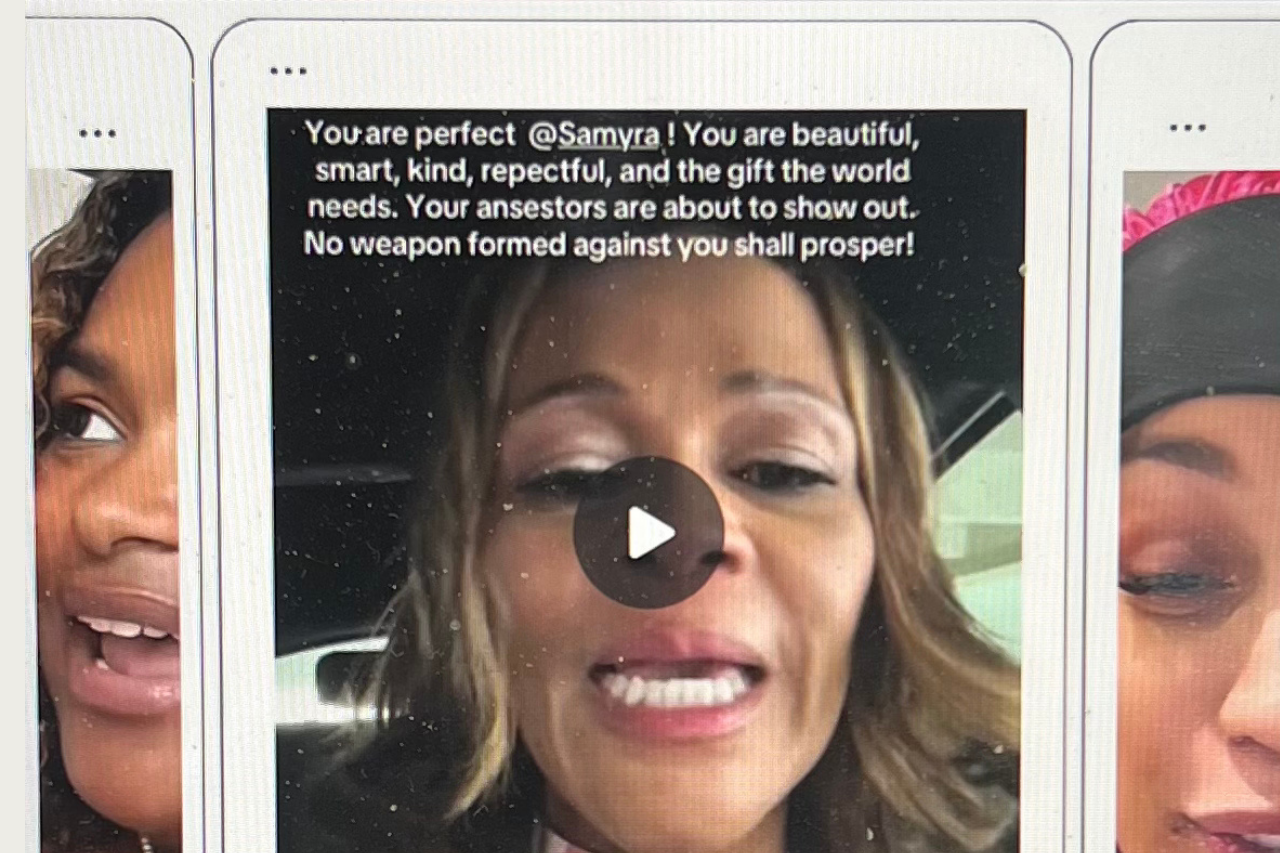A mother defending her adult child is not a new phenomenon. What’s new is the audience. In another era, that defense might have happened over the kitchen table, in a letter, or at a school event. Today, it unfolds on TikTok, to hundreds of thousands of strangers, each ready to interpret, judge, and share.
That’s exactly what happened when TikTok creator Samyra became embroiled in a wave of online backlash after rapper Cardi B (born Belcalis Almánzar), during a live session, referred to some of her own fans as “fat as f—.” The comment sparked accusations of fatphobia from within Cardi B’s loyal #BardiGang, igniting debates about body image, fan loyalty, and celebrity accountability.
Samyra’s own online presence put her close enough to the fire to respond, and when she did, her mother followed, publicly defending her daughter’s stance.
Even when children are legally, financially, and socially independent, maternal instincts don’t turn off. Many midlife mothers were raised in a culture where defending your child was seen as part of your identity, a reflection of loyalty, love, and family honor. But in the era of TikTok, that loyalty is amplified in ways no one in previous generations had to consider. It can mean speaking directly into a public conversation already charged with emotion, celebrity influence, and internet speed.
For Gen X and midlife mothers, this is a new form of parenting: one where your defense is instantly recorded, shared, and dissected by strangers, often without the full context of family history or private conversation.
Public defense can be affirming for the child, a visible sign that they’re not alone in the face of criticism. But it can also escalate a situation, drawing more attention to the conflict, making it harder to control the narrative. The internet rewards drama with views, and once a family dynamic enters the algorithm, it stops being just family business.
Gen X parents grew up with private disputes and analog reputations. Millennials and Gen Z have lived much of their social life online, where defense, disagreement, and discourse are all performed in front of an audience. This shift changes the emotional weight of “stepping in” it’s not just about defending someone’s feelings, but also about managing a public persona.
The tension here isn’t just between Cardi B and those offended by her remarks. It’s also generational. Many Gen X women remember the decades when “fat jokes” were late-night TV punchlines, magazine headlines, and common social banter. Younger generations have shifted the conversation, calling out fatphobia openly and reframing body image as an issue of respect, not ridicule.
When a mother steps into that space to defend her adult child, especially in a celebrity-adjacent conflict, she’s not just protecting her family. She’s wading into a larger cultural conversation about what’s acceptable to say, who gets to say it, and how hurt travels faster online than it ever did in person.
The Samara–Cardi B moment isn’t about who “won” an argument. It’s a case study in what public loyalty looks like now, and the personal cost of entering celebrity-influenced digital discourse.
For the mother, it’s a declaration of love. For the internet, it’s another flashpoint for debate. Many questioned her intent, wondering if the same defense could have been made privately: “Does she not have her number?!” That reaction speaks to a wider skepticism about public conflict, whether it’s about protecting someone or simply amplifying the drama.
In truth, the Samara incident is less about a single disagreement and more about the cultural moment it represents:
- A time when parents and children share the same platforms.
- A world where personal conflicts are entertainment for others.
- An era where loyalty and public image intersect, and not always comfortably.
For midlife parents, it’s a reminder that the definition of “being there for your child” is evolving. What once meant showing up in private now sometimes means showing up in public with all the power and peril that entails.
But this isn’t just about parenting. As viewers, we are witnesses, participants, and sometimes amplifiers in these moments. By watching, sharing, or even silently scrolling past, we help decide how long a story lives and how it’s remembered.
It’s worth asking ourselves: if the person at the center of the storm were our child, or us, how would we want that defense to unfold? Would we choose the quiet of a private conversation, or the visibility of a public stand? In an age where love, loyalty, and reputation can all be streamed, the answer is rarely simple, but the question is always worth asking.
